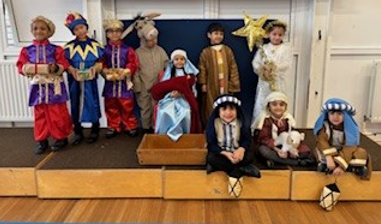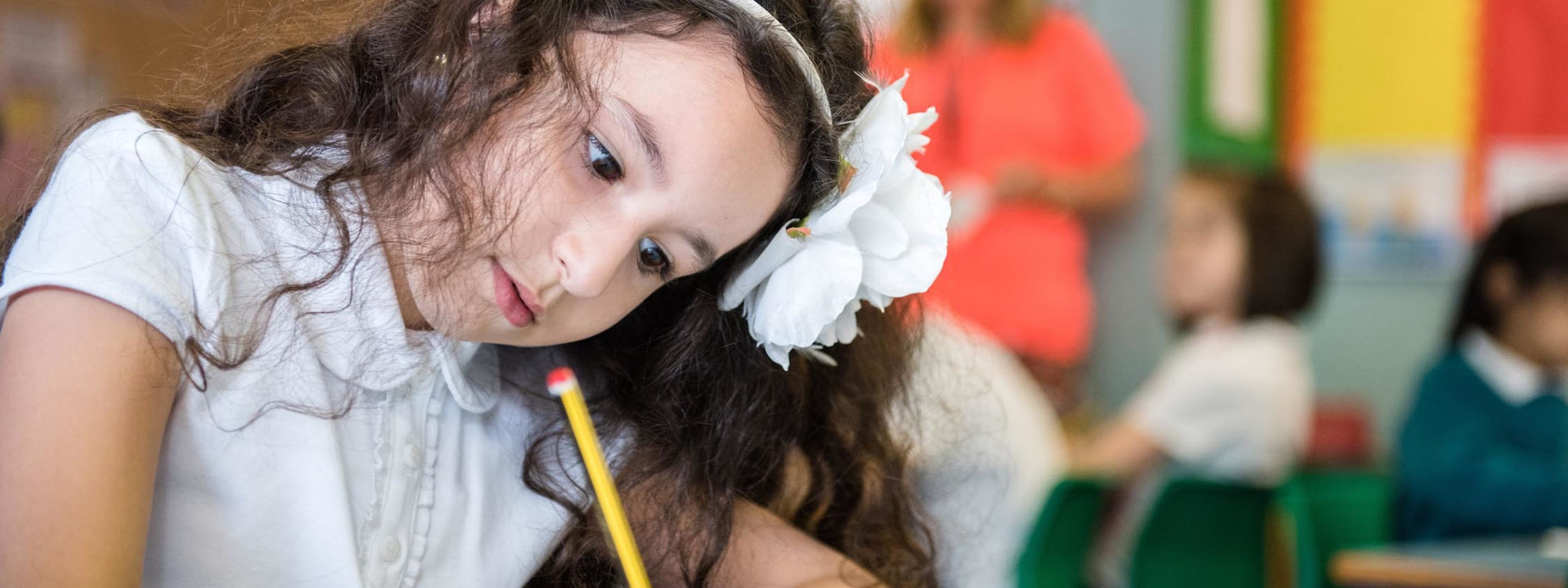- Home
- Curriculum
- Subject Information
- RE
RE
“Education is the most powerful weapon which you can use to change the world.” - Nelson Mandela

Intent
RE makes a valuable contribution to pupils’ personal development and to their understanding of the wider world. RE does not try to persuade but rather to inform and develop the skills with which evaluation can take place. Our belief is that, using an enquiry-based model well, children’s critical thinking skills can be developed, their motivation to learn increased, and their knowledge and understanding of, and empathy with people and their beliefs, religious or otherwise, will be enhanced. This approach takes very seriously the philosophy that children are free to make their own choices and decisions concerning religion and belief.
At Firs Primary School, we teach RE through the Jigsaw RE scheme. Jigsaw RE is a comprehensive detailed lesson planning resource for Religious Education written by teachers for teachers. The Jigsaw RE scheme teaches about world religions, in a progressive way, to open our children's eyes and develop them as global citizens living in a multi-cultural society. The protected characteristics and British values also link closely, allowing us to teach about equality, diversity and inclusion through RE.
In Early Years the children spend time exploring all the major religions through celebration topics and exploring special stories and places.
Key Stage One builds upon this teaching as the children look in more depth at what Christians believe - the children take time to ask ‘Big Questions’ and make connections across religions. The children also learn about Judaism in Year One and are introduced to Islam in Year Two.
Key Stage Two builds upon the learning of Christianity, Sikhism, Judaism and Islam with the addition of Hinduism in Year Three. The children are encouraged to think critically and ask questions of a religion as each half term focuses on a ‘Big Question’.
These religious topics have been chosen specifically from the ‘Jigsaw RE’ scheme to support and make links with our knowledge rich curriculum.
Implementation
Our enquiry approach makes RE exciting and engaging for both teachers and children alike. We apply a range of Oracy skills to help the children learn more effectively. This is achieved by the use of sentence stems to support children in providing quality in depth answers to enquiry questions.
Religious Education is taught in all year groups from Reception to Year 6. In Reception, the curriculum is based around the different religious ceremonies observed throughout the year. In Years 1-6, RE is taught weekly.
Christianity is taught in every year group, with Christmas and Easter given fresh treatment every year, developing children’s learning in a progressive way. Buddhism, Hinduism, Islam, Judaism and Sikhism are included and there is flexibility as to which religions the school chooses to teach when.
Jigsaw RE focuses on critical thinking skills, on personal reflection into the child’s own thoughts and feelings, on growing subject knowledge and nurturing spiritual development.
By the end of the key stage the children will be able to:
Key Stage 1:
- Recall and name different beliefs and practises.
- Retell and suggest meanings to some religious and moral stories.
- Recognise different symbols and actions linked with religious communities.
- Ask and respond to questions.
- Observe and recount different ways of expressing identity and belonging.
- Notice and respond sensitively to similarities between religions and worldviews.
- Explore questions about belonging, meaning and truth.
- Find out about examples of cooperation between people who are different.
- Find out about questions of right and wrong.
Key Stage 2:
- Describe and make connections about different religions and world views.
- Describe and understand links between stories and other aspects of different communities.
- Explore different beliefs, symbols and actions.
- Observe and understand varied examples of religions and worldviews.
- Understand challenges of commitment to a community of faith.
- Spot similarities and differences.
- Discuss and present thoughtfully their own views.
- Consider how diverse communities can live together.
- Research and answer ethical questions.
Each unit exposes children to a wide range of ambitious, subject-specific vocabulary. Vocabulary is introduced, revisited and reinforced over time, so that children become confident and articulate as they progress throughout the curriculum. A set of display words and a knowledge organiser glossary are included with each unit of work to make it easy for children to use new words independently.
Impact
Children will demonstrate their knowledge, skills and understanding through speaking, listening and writing. Role play scenarios encourage children to further develop their confidence in front of their peers and use a range of subject-specific language.
By the time pupils leave Firs Primary School, they will have developed the skills, knowledge, and understanding to succeed, with an enthusiasm for RE, in secondary education and beyond.

